The hunt for a unique advent calendar
- Published
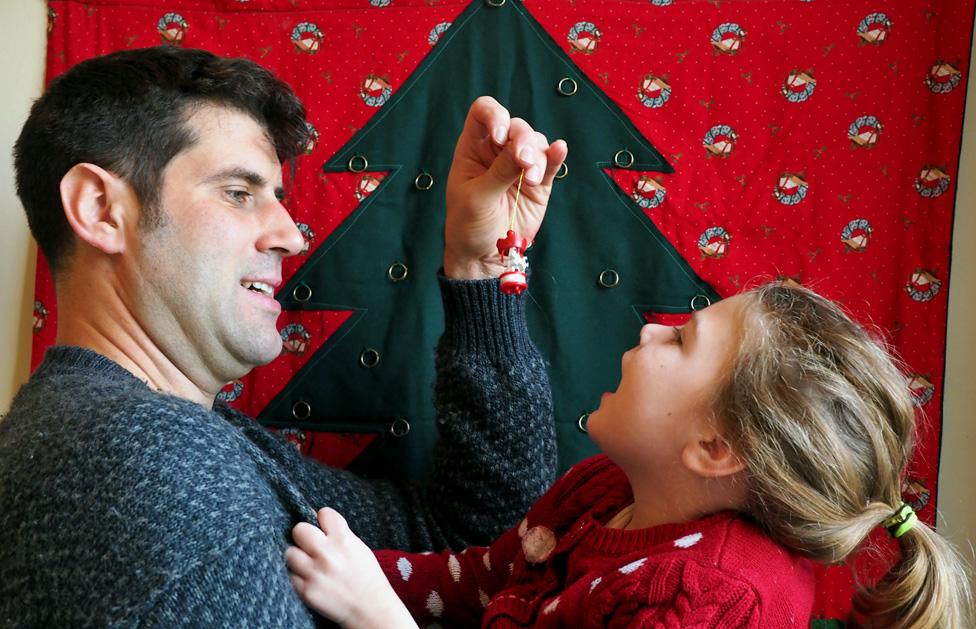
Advent calendars have become big business for children and adults alike, signalling the start of the Christmas countdown.
But for lots of disabled children they can be a no-go - the fiddly doors require dexterity to open, sweets may not be allowed for medical reasons and the concept might not make any sense to them. But rather than miss out, some parents have found ingenious ways for them to join in
When I was a child, my parents hung an advent calendar at the foot of the stairs. It was a square-ish quilt my mother had made with a big Christmas tree at the top and 24 numbered pockets underneath.
Every night my parents placed an ornament and a small gift into a pocket and every morning I - or one of my sisters - would run downstairs to hang the ornament on the tree and examine the small present.
I now have my own family and my own advent quilt, also made by my mother, but I have struggled to continue this tradition.
My four-year-old daughter has a severe learning disability caused by a rare disease - she can't crawl, talk or see very well. Katy can't hang the ornaments on the tree or eat any sweets.
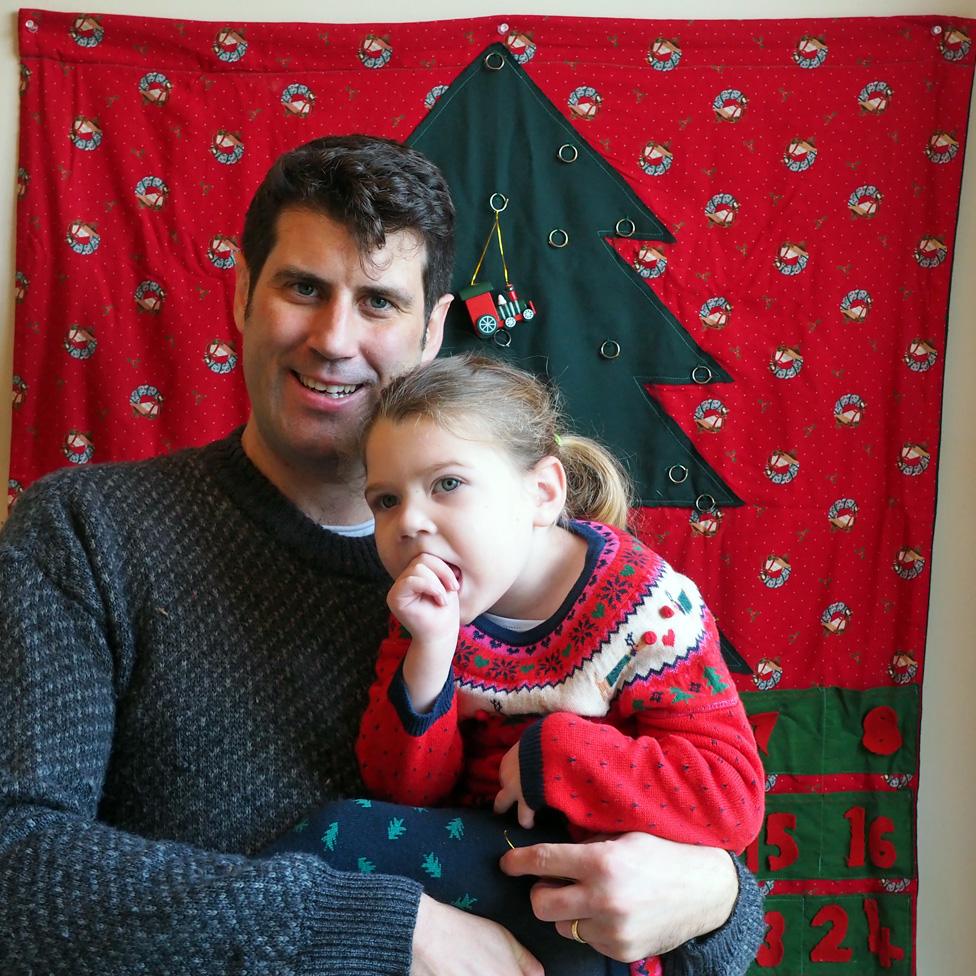
In fact, there aren't many small gifts that she really enjoys. Last year I tried putting some Christmassy hair-slides in the calendar, but the only thing Katy hates more than getting dressed is people touching her hair, so it was no fun for her.
Since Katy doesn't understand Christmas, gifts, or advent I began to ask myself who the calendar was for - her or me?
That's when I went online and saw that special needs families around the world had found many ways to include their children in advent.
Festive physio
Australian blogger, external Julie Jones is mother to Braeden, now 24, who has cerebral palsy.
"As he was growing up I was just really frustrated because there were so many things around Christmas that were traditional, and which he couldn't participate in," says Julie.
"The traditional advent calendars have little poky boxes and you have to be able to open them, and they require fine motor skills that he just didn't have."
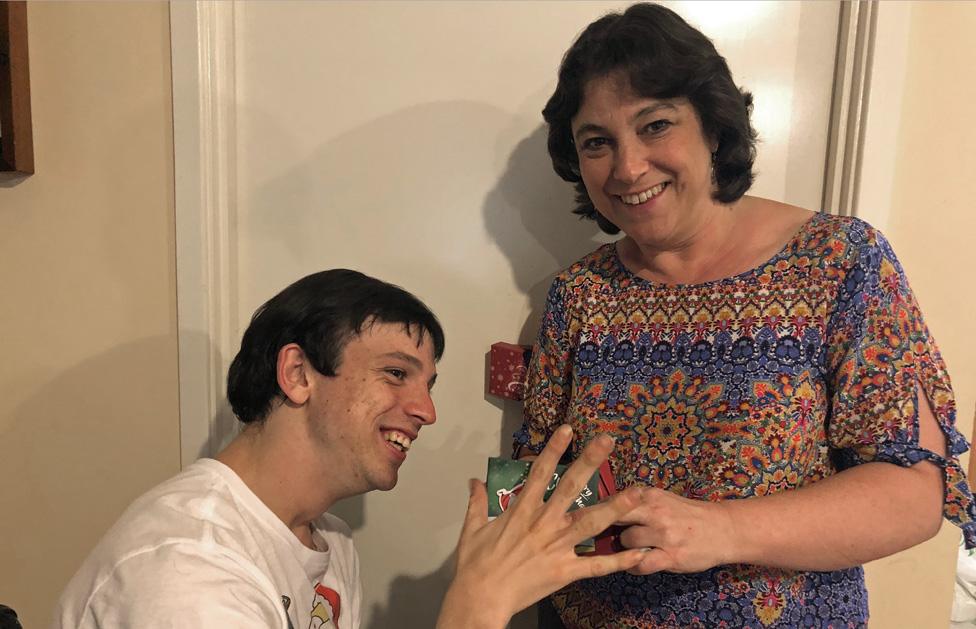
Julie's solution was to hang up a set of sparkly gift boxes, engineered to be opened with a drawstring. Inside were knick-knacks like bouncy balls and toy cars.
It still wasn't easy for Braeden to get at these goodies - but it was doable, and he had a great incentive to try. Julie says that over the years Braeden's fine motor skills improved because of the daily round of festive physio.
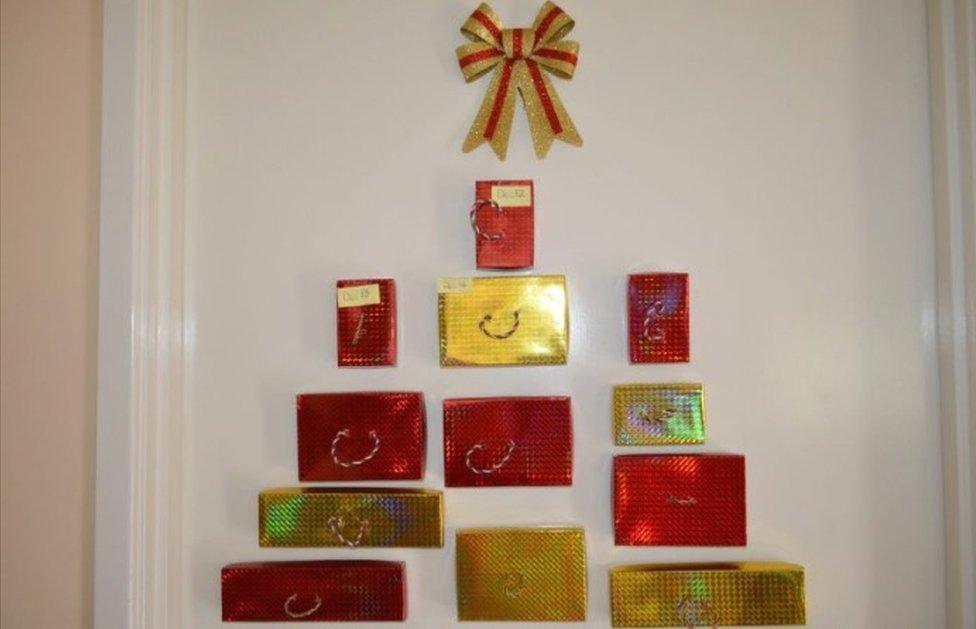
Melanie Mills's advent calendar is like mine - it's made of fabric with rows of pockets. But instead of ornaments she gives her nine-year-old son Marshall little fabric cut-outs with Velcro on the back.
Marshall, who has learning difficulties and other medical issues, can stick these on the calendar to create a picture - in theory.
"At the beginning Marshall would always try to put them all on top of each other, so you'd have this nice big snow scene with 24 little things all stuck in the same place," recalls Melanie, laughing. "Whereas a neurotypical child would have put the sleigh with reindeer and that kind of thing."
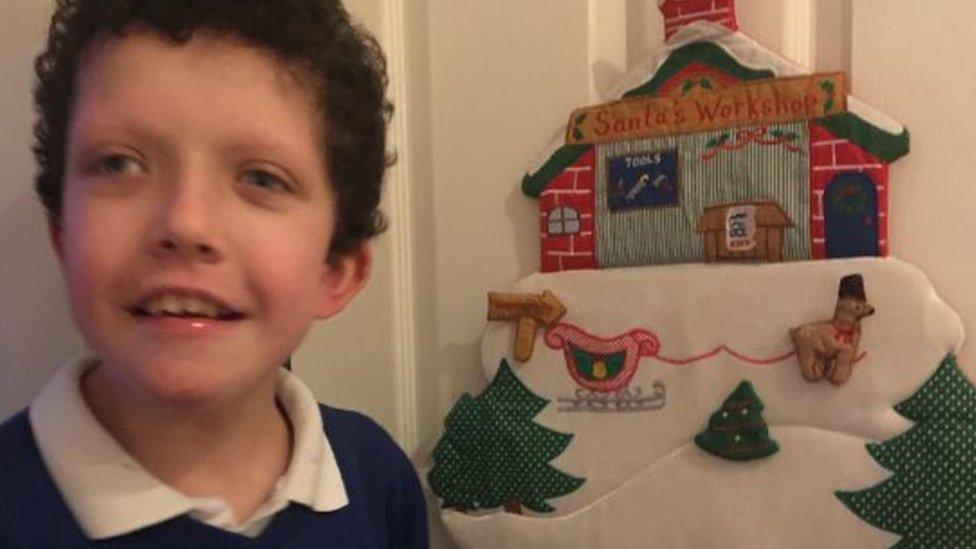
Marshall has gradually learned to spread the ornaments out in a more conventional way. More importantly, in the last couple of years he's understood that the reappearance of the calendar means Christmas is on its way.
This year, as well as the craft activity, Marshall will get cold hard cash. Every day he will get £1 to drop into a Christmas-tree-shaped coin run that empties into a bucket. Marshall loves shopping, so after Christmas he'll hit the sales to spend his £24.
In aiming for simple inclusion, the special needs community is compelled to be creative. We often end up giving our children meaningful experiences that able-bodied kids don't get to enjoy.
Glancing at my online network, I see one mum has found an advent cabinet and gets her son, Alfie, to "eye-point" to the right day whereupon she reads him a joke. Another mother sets her child riddles and a treasure hunt.
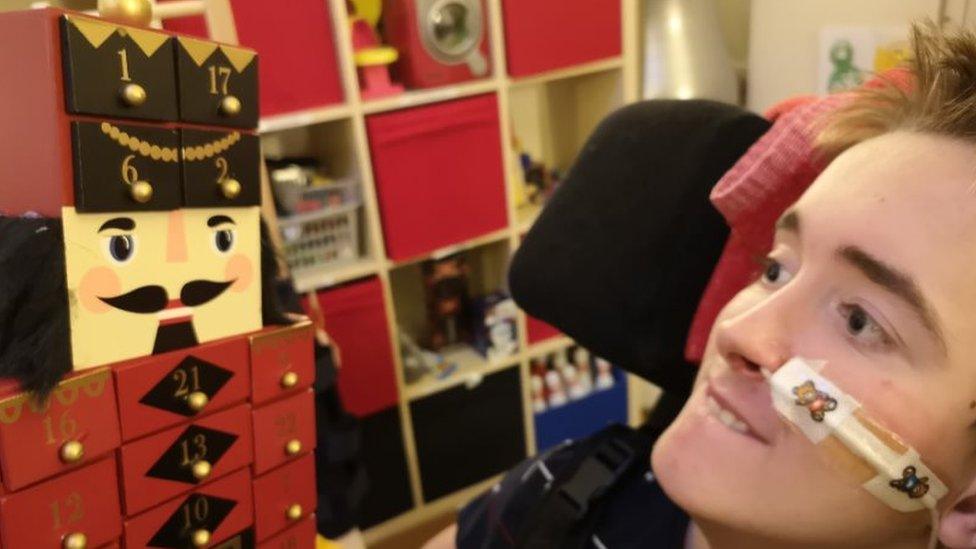
Sally Collett says she would love to be able to buy an advent calendar in a shop that could be enjoyed by her 13-year-old son Adam, who has multiple disabilities. Last year was the first time she felt she had the time and energy to create something herself.
She sought out 24 scented candles, and loosely wrapped them in crinkly paper that she knew Adam would enjoy playing with. In the evening, while he was taking his medication, he picked out a candle, which the family lit to enjoy together.
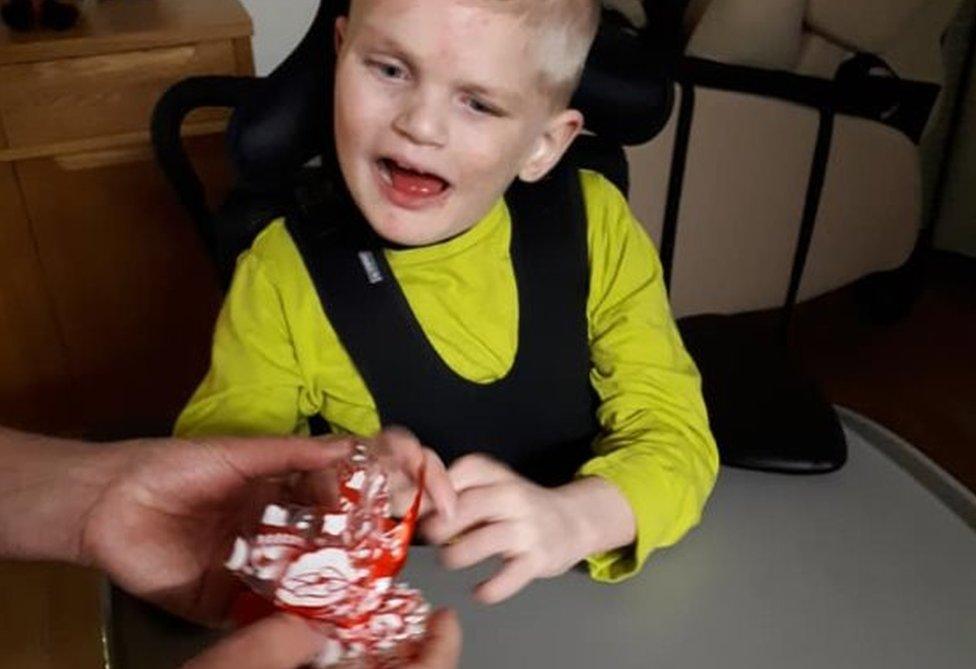
"I always think this time of year is more poignant than others, to think about how lucky you are," she says. "To me the meaning of Christmas is family, and you've got another year with your child - that's so important."
Alongside ingenuity there is realism. For some autistic children, the countdown to Christmas isn't fun but frightening. Others become too obsessed with their calendars, or can't stop themselves from gobbling all the chocolates at once. Parents of these kids lock the calendars away or dispense with the tradition altogether.
"The challenge we've had in the past is that 24 days is long enough to establish a new routine, and then on day 25 it changes again," says Rachel Wilson, mother of two children with autism. "I don't think we could introduce something new into the routine at all, so I think it would be more about adapting part of the day."
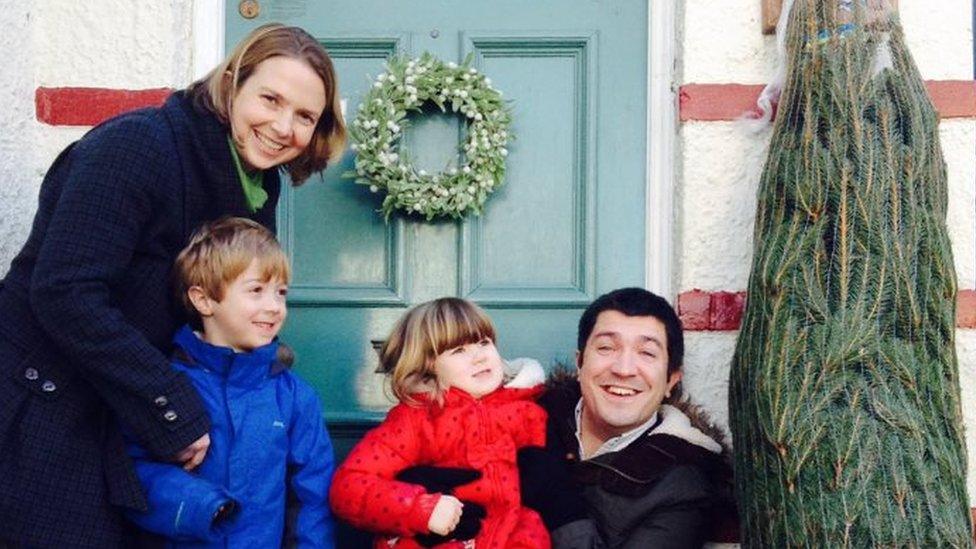
Rachel and her husband, Andrew, wrote The Life You Never Expected, a memoir about caring for disabled children, written from a Christian perspective. While the couple's son Zeke has developed enough to read a book of bible stories, their nine-year-old daughter Anna has a reasoning and conceptual ability that Rachel describes as "pre-toddler".
For Anna, Rachel is thinking about changing bath-time during advent to give it a special feel, with some candles and music and maybe some plastic nativity figurines to play with.
When I confess to Rachel my worry that maybe I'm just doing advent for my own benefit she tells me: "Even if you are doing it for yourself, it's still legitimate and it's still important to have those traditions in place."
She says: "I have similar worries, particularly on Anna's birthday, when I think 'Who is this for?' But actually, I need to mark it. A lot of taking care of special needs children is trying to manage those moments for yourself."
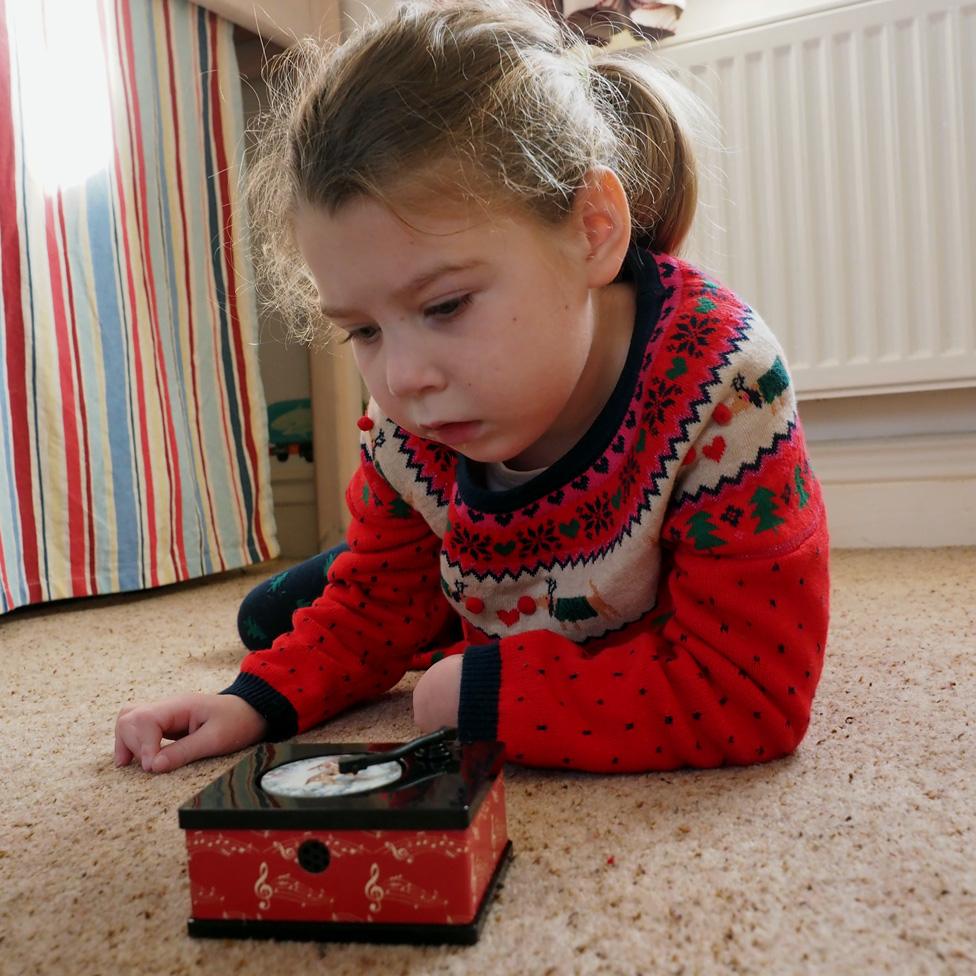
Last week, my wife and I found a calendar that might just fulfil this need in me and still be enjoyable - perhaps, one day, meaningful - to Katy.
She loves music and nursery rhymes, and online we found a little plastic gramophone that comes with 24 "records". We can tuck these into the pockets of mum's calendar and we'll help Katy retrieve them each morning to play.
If it's a hit we'll be getting it out for many Christmases to come. If it's not… well... we can always light some smelly candles.
For more Disability News, follow BBC Ouch on Twitter, external and Facebook, external, and subscribe to the podcast. You can also email ouch@bbc.co.uk, external.

- Published13 November 2018

- Published7 December 2017
